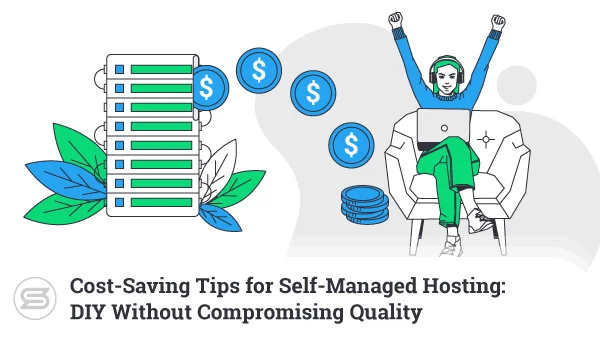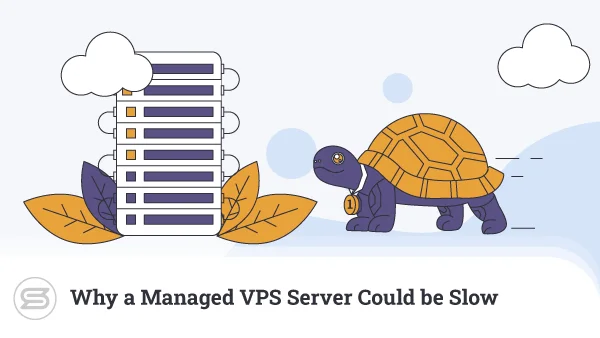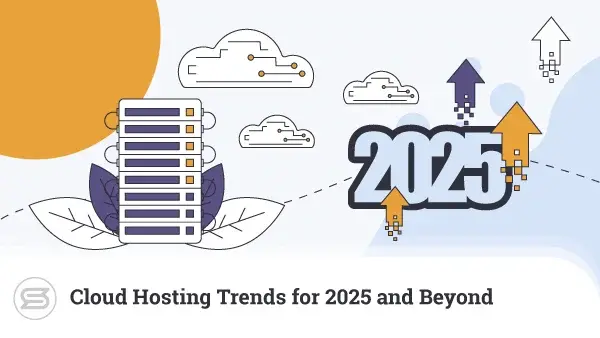Regulatory compliance and security are important for every business, no matter the industry it is in. However, they’re even more essential for healthcare and finance, as those two industries deal with two very important aspects of people’s lives – health and money.
Compliance is a state of being in accordance and conforming to a set of rules, like policies and laws. It means that your business adheres to the rules established by relevant authorities and works hand-in-hand with them. On the other hand, security encompasses both physical and digital protection.
Namely, healthcare institutions must be able to protect their patients’ physical well-being as well as keep their personal information safe. When you think of security here, a great example is the doctor-patient confidentiality that all doctors must respect.
By being in lines of work that directly deal with people’s sensitive information, healthcare and finance organizations must take compliance and security seriously.
In this article, you’ll learn why compliance and security are so important, which standards are applicable to healthcare and financial industries, and learn how to keep your business up to date. But how does managed VPS hosting relate to these industries? Let’s have a look.
The Importance of Compliance and Security
Compliance and security are imperative for both healthcare and finance organizations due to the fact that both industries handle critical information on a daily basis, and the negative effects of mishandling such information can be devastating.
As mentioned, doctor-patient confidentiality is sacred in healthcare. And since the communication between doctors and patients is so strict, so is the handling and secure storing of the information shared between them. A leak can lead to severe legal and reputational repercussions for the healthcare organization. If such an organization loses its patients’ data, it won’t be deemed a suitable caregiving institution and might even shut down.
In a similar but not exact fashion, finance institutions rely on trust and data accuracy. Namely, no one wants to work with a bank that has faced constant data breaches and has revealed its clients’ information frequently in the past.
Also, financial institutions are constant targets for hackers, so having poor security measures almost always leads to the bank being robbed and the clients losing their money. The theft in question can be both physical and digital, which is why both physical and digital safety are imperative for financial institutions.
Not only do compliance and security regulations protect sensitive information, but they also uphold public trust and maintain the stability and integrity of both healthcare and financial organizations.
Regulatory Requirements and Standards Applicable to Healthcare and Finance
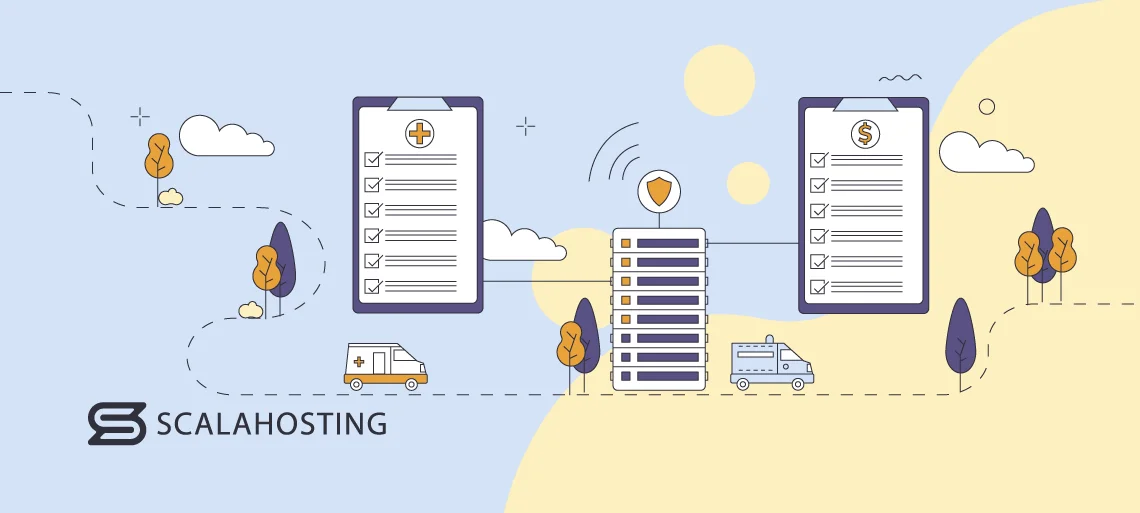
Healthcare and finance are heavily regulated industries, and with a good reason too. Each has its own set of specific regulatory requirements and standards to ensure accountability, transparency, and public trust.
One of the most significant regulations for healthcare organizations in the United States is the Health Insurance Portability and Accountability Act (HIPAA). It mandates strict privacy and security standards for protected health information (PHI), which ensures patient confidentiality.
In addition, healthcare organizations must abide by the Health Information Technology for Economic and Clinical Health (HITECH) Act, which encourages and promotes the adoption of electronic health records (EHRs). So, all healthcare organizations need a safe and air-tight way to store and manage their electronic health records, and many use managed VPS hosting to do so.
The finance sector, on the other hand, is subject to a wide range of regulations.
- PCI DSS (Payment Card Industry Data Security Standard) – aims to protect and optimize the security of cardholders’ sensitive information, like their credit card number, security codes, expiration dates, etc. This standard was established to help minimize fraud, identity theft, and data breaches.
- Dodd-Frank Wall Street Reform and Consumer Protection Act – introduced in 2008 in the United States following the financial crisis. This act created the Consumer Financial Protection Bureau (CFPB) and made sure that banks were subject to strict oversight in order to prevent another crisis. This regulation is the reason why banks and other financial institutions can’t be as loose in handing out loans as they were before the crisis.
- Basel III standards – handle bank regulation on an international level by establishing capital requirements and risk management guidelines for banks worldwide.
- Anti-Money Laundering (AML) regulations – these require financial institutions to implement strict measures to detect and prevent money laundering activities.
Moreover, both healthcare and finance sectors must consider cybersecurity regulations, like the Health Information Technology for Economic and Clinical Health (HITECH) Act for healthcare and various cybersecurity guidelines for financial institutions. These regulations ensure that both industries operate in a way that prioritizes the welfare of individuals and the stability of the economy.
In order to adhere to the various cybersecurity regulations, both healthcare and finance organizations must find reliable hosting providers that offer a safe way for them to operate and handle sensitive information. Hosts must be able to safeguard the organizations from cyberattacks.
Again, this is where managed VPS hosting comes in, as it can ensure that all information that passes through and is stored on an organization’s server is safe.
Key Managed VPS Hosting Considerations That Can Ensure Compliance and Security for Healthcare and Finance Organizations
Managed VPS (Virtual Private Server) hosting is one of the most popular web hosting solutions for businesses, as it offers a balance between affordability and control. It is much safer than shared hosting while being more affordable than dedicated hosting.
Also, since it is a managed service, it gives businesses the opportunity to put the security and protection of their clients’ data in the hands of professionals. Namely, the provider’s support team takes care of maintaining the server and keeping everything in check, which means they will expertly handle all privacy and security concerns.
That’s why managed VPS hosting is ideal for both healthcare and finance organizations and why many such organizations use it in their daily operations. But in order to ensure compliance and security in a managed VPS hosting environment, you need to pay attention to quite a few key considerations.
Let’s explore them in more detail.
Secure Data Storage and Transmission

With managed VPS hosting, you can rest assured that your company and user data is secure, as it uses a wide range of secure data storage practices to store sensitive information. Those include:
- Encryption: Most managed VPS hosting providers use robust encryption, such as SSL, TLS, and disk-level encryption, to protect your data while it’s flowing from your devices to your servers and when it is at rest.
- Data Segmentation: Managed VPS hosting providers segment sensitive data from less critical information to reduce exposure and potential data breaches.
- Security Updates: With a managed VPS hosting plan, your security will always be up to date because it will be handled by experts who monitor your servers 24/7. Also, all new patches will be automatically installed, which will help protect you against online threats.
- Monitoring and Logging: Most managed VPS hosting services offer 24/7 monitoring and detailed error logs, which help detect and respond to suspicious activities and breaches in a matter of seconds.
- Compliance Standards: Managed VPS hosting providers are able to comply with industry-specific standards, like PCI DSS or HIPAA, thus ensuring that sensitive data is stored and handled in accordance with all regulatory requirements.
Access Control and User Management

Managed VPS hosting providers employ robust access control mechanisms to safeguard data and ensure compliance with industry standards. So, with managed VPS hosting, you can control what goes on on your server by restricting data access based on user roles and giving each user a set of specific permissions and restrictions. That way, you’ll ensure that people who aren’t authorized to see or handle specific information don’t have access to it.
But that’s not everything that managed VPS hosting does to implement access control and strict user management. Virtual server solutions also employ measures like user account management, authentication and authorization, strong password policies, and multi-factor authentication (MFA).
User Account Management
With managed VPS hosting, you can create, edit, and disable user accounts. By doing so, you can ensure that only authorized individuals have access to your server and network. Additionally, VPS hosts allow you to monitor user activity, which helps you to identify suspicious activities and potential security threats.
Authentication and Authorization
By implementing strict authentication processes, managed VPS hosts help you verify the identity of all users who are trying to access your network or server. Some of the authentication methods that providers use include username and password combinations and certificate-based authentication.
On the other hand, authorization determines what individuals can do when they gain access to your network and server. In this case, most managed VPS hosts use role-based access control (RBAC), which assigns specific permissions to users based on their roles within the company. This ensures that no employee oversteps their boundaries and gains access to sensitive information they shouldn’t see.
Strong Password Policies
Managed VPS hosting providers implement strong login credential policies by setting password length, complexity, and expiration requirements. Also, they remind account owners to change their passwords regularly and don’t allow the reusing old passwords. Once passkeys are created, they are stored on the server using strong encryption techniques.
Multi-Factor Authentication (MFA)
Multi-Factor Authentication (MFA) is a great way for healthcare and finance organizations to further protect their data and system access. MFA requires users to provide two or more authentication methods, such as passwords, a hardware token, a code from another device, etc. With multi-factor authentication, your system will be protected even if an employee’s password is compromised.
Security Audits and Vulnerability Assessments
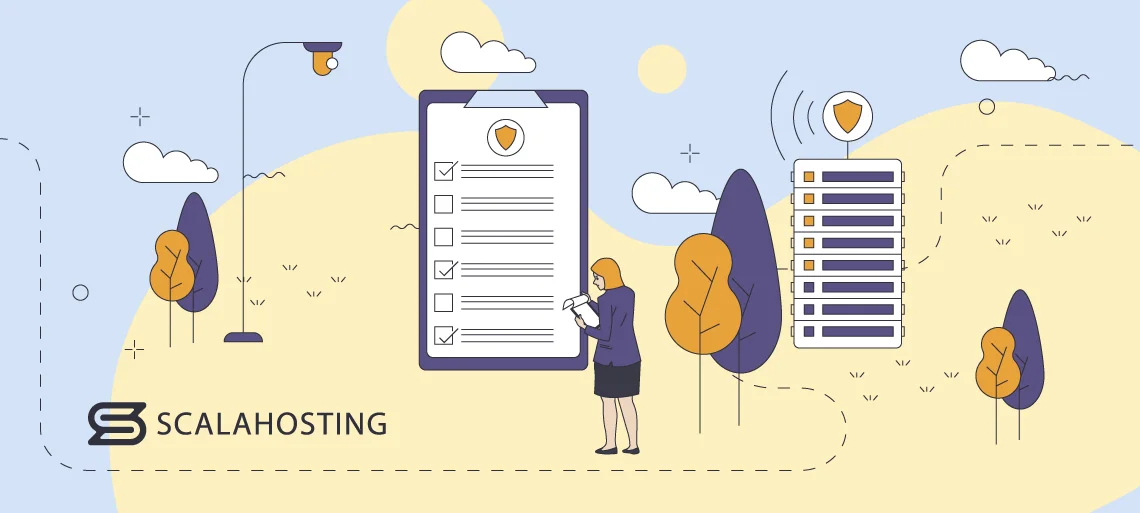
If you want your server and network to be completely secure, you must conduct regular security audits and vulnerability assessments. Of course, not everyone knows how to do that, which is why managed VPS hosting services are a great solution to this problem.
VPS hosting providers conduct security audits and vulnerability assessments on your server and networks by making comprehensive reviews of your security policies, procedures, and technical controls. This involves examining access controls, user management, data encryption, and industry standards compliance. Vulnerability assessments involve using specialized tools to scan systems, apps, and networks for potential weaknesses.
However, that’s not everything that managed VPS hosts do to check your security level and assess vulnerability. They also engage in penetration testing, also called ethical hacking. This type of testing involves simulating real-world cyberattacks to see if your system and server can be easily hacked.
To complete a penetration test successfully, cybersecurity experts try to exploit vulnerabilities within your system, which provides them with a practical and hands-on view of potential threats. This also helps them understand how your system’s defences stand up against actual attacks and if they need any improvements.
To help you even more, managed VPS hosts use vulnerability scanning tools to identify weak spots within your infrastructure, which can include outdated software, unpatched systems, and improper settings.
Once all the tests, assessments, and audits are done, you can see your shortcomings and get advice on the steps you can take to patch them up. This can involve anything from applying security patches and reconfiguring systems to implementing additional security measures to enhance your system.
Incident Response and Disaster Recovery

Developing an air-tight incident response plan (IRP) is an essential component of any organization’s cybersecurity strategy. An incident response plan is an outline of procedures and guidelines for effectively handling security or data breaches.
In general, incident responses involve:
- Timely Detection: The first step in incident response is timely detection. Implementing intrusion detection systems (IDS), intrusion prevention systems (IPS), and security information and event management (SIEM) solutions can help you identify abnormal activities or security events promptly.
- Reporting and Containment: Once you or your managed VPS hosting provider detect an incident, your next move is to report the incident properly. This involves knowing who to contact both internally and externally (regulatory bodies or legal authorities). You then need to focus on containing the incident and preventing it from spreading further.
- Incident Analysis and Response: After you prevent the problem from spreading, you need to conduct an incident analysis that will tell you the root cause of the problem and how it has impacted your organization. With this information, you’ll be able to put together a tailored and effective response.
- Disaster Recovery Strategies: Once you’ve crafted an appropriate incident response, you must have plans in place to ensure data restoration and business continuity. This can be anything from using backup servers to storing your data in off-site data centres.
Data Backups and Retention Policies
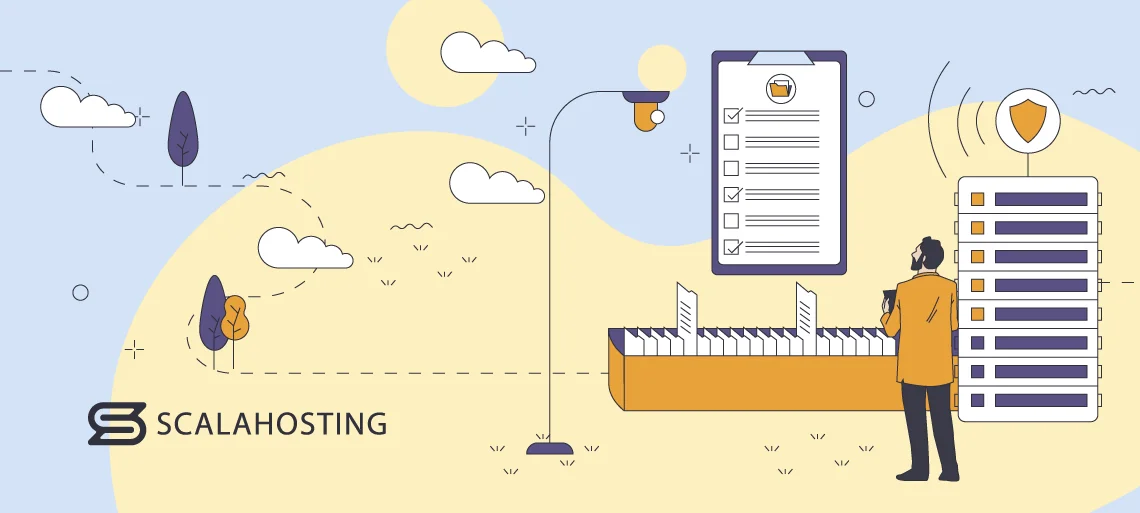
Your managed VPS hosting provider can help you establish data backup and retention policies that align with your industry regulations. By establishing such practices, you’ll ensure that your data is safe, easily recoverable, and your website is compliant with all the necessary regulations.
When configuring data backup procedures, managed VPS hosts typically make regular, automated backups of your entire VPS server or specific data sets. You can generate the backups at different points in time and easily recover them in the event of accidental deletions, cyberattacks, or data corruption.
Your managed VPS host can also help you align your backup retention policies with industry regulations and compliance standards like HIPAA. They can also ensure that financial organizations are PCI DSS compliant.
To enhance your data protection and disaster recovery capabilities, managed VPS hosts also implement secure offsite/remote backups. These archives are stored in locations separate from your main servers and keep your data safe from natural disasters, such as fires, floods, and other extreme events.
Overview: Pros and Cons of Using Managed VPS Hosting in Finance and Healthcare
| Pros | Cons |
|---|---|
| Managed VPS hosts often comply with industry-specific regulations like HIPAA and PCI DSS. | Limited control over your servers. |
| Managed VPS plans are cost-effective. | More expensive compared to shared hosting. |
| Enhanced security measures such as firewalls, encryption, and intrusion detection. | Less secure than dedicated servers |
| Regular security updates and patch management. | |
| Doesn’t require you to have any prior technical knowledge or hire IT experts. | |
| Offers scalable resources that accommodate growth. | |
| 24/7 technical support and assistance with server-related issues. | |
| Reliable backups and retention policies for data protection. |
The ScalaHosting Managed VPS Hosting service comes with expert 24/7 customer support and automatic off-site backups that ensure you have a sound data retention and recovery process in place. Also, the ScalaHosting SShield tool will further protect your system, blocking 99.998% of web attacks and notifying you in case of a breach.
Conclusion
All in all, healthcare and finance organizations can benefit greatly by using managed VPS hosting to store their data and host their internal networks. The service will help them ensure regulation and standard compliance, as well as create air-tight security for their systems and clients.
However, the level of compliance and security you get depends greatly on the managed VPS hosting provider you choose. If you want to find a reliable VPS host, look no further than ScalaHosting, which offers robust managed solutions that ensure compliance and provide top-tier security.

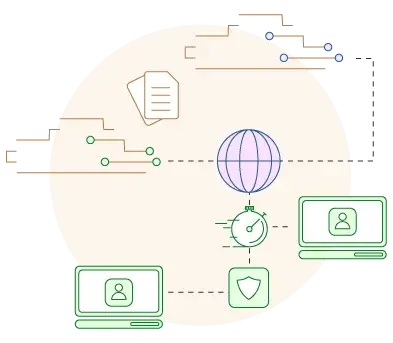
FAQ
Q: Why do healthcare organizations need to comply with HIPAA?
A: Healthcare organizations must comply with the Health Insurance Portability and Accountability Act (HIPAA) because it protects patients’ privacy, establishes the legal obligations that healthcare organizations have, prevents data breaches, and ensures accountability. The regulation protects patients and helps healthcare organizations to operate efficiently and ethically.
Q: Why do financial institutions have to comply with PCI DSS?
A: Financial institutions must comply with the Payment Card Industry Data Security Standard (PCI DSS) to ensure their clients’ sensitive payment data is safe. This standard makes sure that your credit card information is safe from potential breaches, fraud, and theft.
Q: Can an Organization Be Fined for Noncompliance?
A: Yes, organizations, regardless of industry, can be fined for noncompliance with various regulations and standards. Noncompliance can lead to fines, penalties, legal action, and reputational damage. The fines for such infractions can be huge and easily cause organization to shut down.


